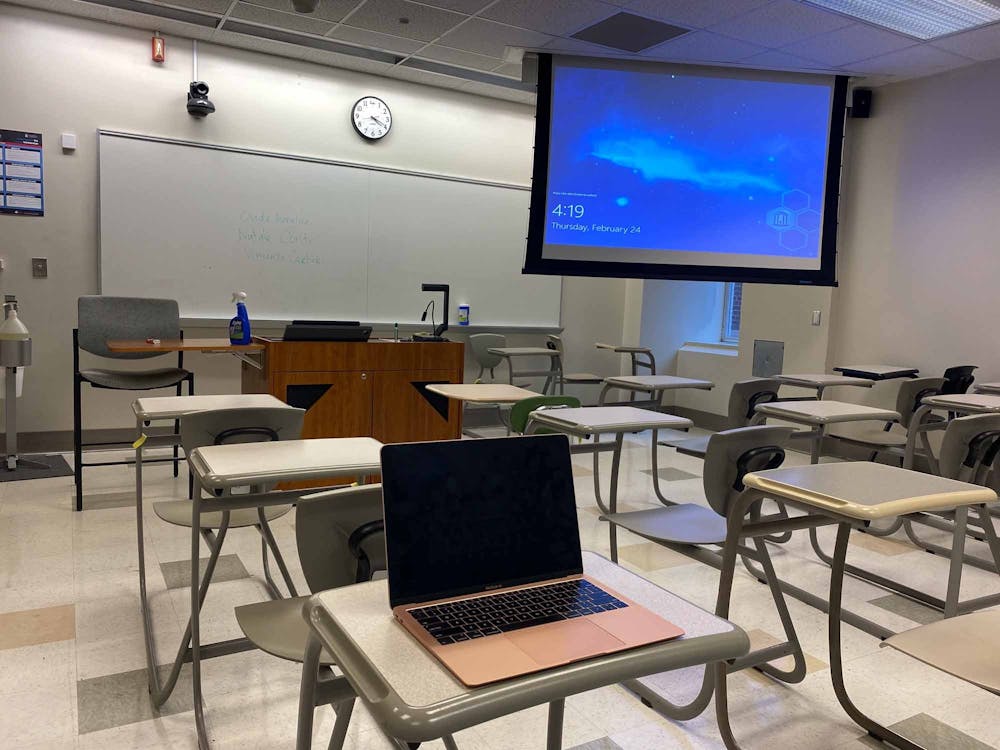We've all heard it in a class: “There will be no technology use in this classroom."
Surely, after an entire academic year where a video communication app was the only means for continuing classes, we would recognize the necessity of technology.
For some professors, technology is still viewed as a distraction.
They would prefer the archaic system of pen and paper notes rather than dare to allow a device in their presence. In their syllabuses, students are often provided evidence that supposedly demonstrates the advantages of taking notes by hand over our devices.
Studies show that when it comes to learning concepts — and more importantly, retrieving facts — those who took notes by hand proved to score higher on tests than those who took notes on laptops.
This can be attributed to further research on undergraduate and law students that has demonstrated that students who use laptops have something unrelated to the class on their screens around 40 percent of the time.
The thought of "no-technology" classrooms is fair and well-intentioned. Professors follow the guidance of research for the benefit of their students. They figure that by outlawing technology in their classrooms, students can be disposed of outside distractions — and fully focus on lecture content.
However, it can be contradictory that some professors are controlling over this issue. So much of college has been self-independence and learning to operate without the close aide of instructors.
Our college experiences have looked very different than high school. No longer are we hounded to complete our assignments — it is merely our choice to determine our success. We can go entire courses without ever interacting with our professors.



